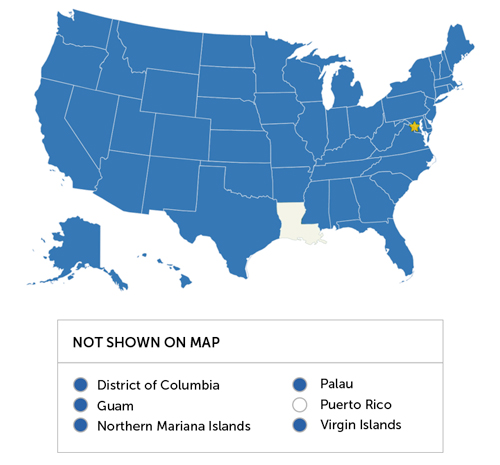The Multistate Bar Exam (MBE)
What is the MBE?
The MBE, which is administered on Wednesday, is developed and graded by the National Conference of Bar Examiners (NCBE).
This portion of the examination is an objective 6-hour examination containing 200 multiple-choice questions, which is divided into two 3-hour sessions during which 100 questions are administered.
Which states accept the Multistate Bar Examination (MBE)?
Every state, except for Louisiana, administers the Multistate Bar Exam (MBE) on the last Wednesday of February and last Wednesday of July every year.

What are the MBE subjects?
The MBE consists of 200 multiple-choice questions, 100 of which are administered in the morning and 100 of which are administered in the afternoon. You will have e hours to complete each of these 100-question sessions. Of the 200 questions, 175 are scored and 25 questions are unscored pretest questions.
The 175 scored questions are distributed evenly with 25 questions from each of the seven tested subject areas:
- Civil Procedure (Civ Pro)
- Criminal Law & Procedure (Crimes)
- Contracts
- Constitutional Law (Con Law)
- Evidence
- Real Property
- Torts
What’s the difference between the Uniform Bar Exam (UBE) and the MBE?
The difference is that the MBE is merely a part of the UBE.
The UBE consists of the MBE, MEE or Multistate Essays, and MPT or Multistate Performance Tests.
The National Conference of Bar Examiners (NCBE) scores the MBE portion while jurisdictions score the MEE and MPT portions. The MEE and MPT are scaled to the MBE and the NCBE calculates an applicant’s total score.
The MBE is weighted 50%, the MEE 30% and the MPT 20%.
UBE total scores are reported on a scale of 400.
What types of MBE questions should I expect?
You will encounter multiple-choice questions with four answer choice options. You should select the BEST answer of the four answer options provided.
Each MBE question is supposed to be answered according to “generally accepted fundamental legal principles, unless noted otherwise in the question.”
Your score is entirely based on the number of questions you answer correctly. No points are deducted for incorrect answer choices.
Here is an example of a real MBE question from a previous bar exam:
A father lived with his son, who was an alcoholic. When drunk, the son often became violent and physically abused his father. As a result, the father always lived in fear. One night, the father heard his son on the front stoop making loud obscene remarks. The father was certain that his son was drunk and was terrified that he would be physically beaten again. In his fear, he bolted the front door and took out a revolver. When the son discovered that the door was bolted, he kicked it down. As the son burst through the front door, his father shot him four times in the chest, killing him. In fact, the son was not under the influence of alcohol or any drug and did not intend to harm his father.
At trial, the father presented the above facts and asked the judge to instruct the jury on self-defense.
How should the judge instruct the jury with respect to self-defense?
- Give the self-defense instruction, because it expresses the defense’s theory of the case.
- Give the self-defense instruction, because the evidence is sufficient to raise the defense.
- Deny the self-defense instruction, because the father was not in imminent danger from his son.
- Deny the self-defense instruction, because the father used excessive force.